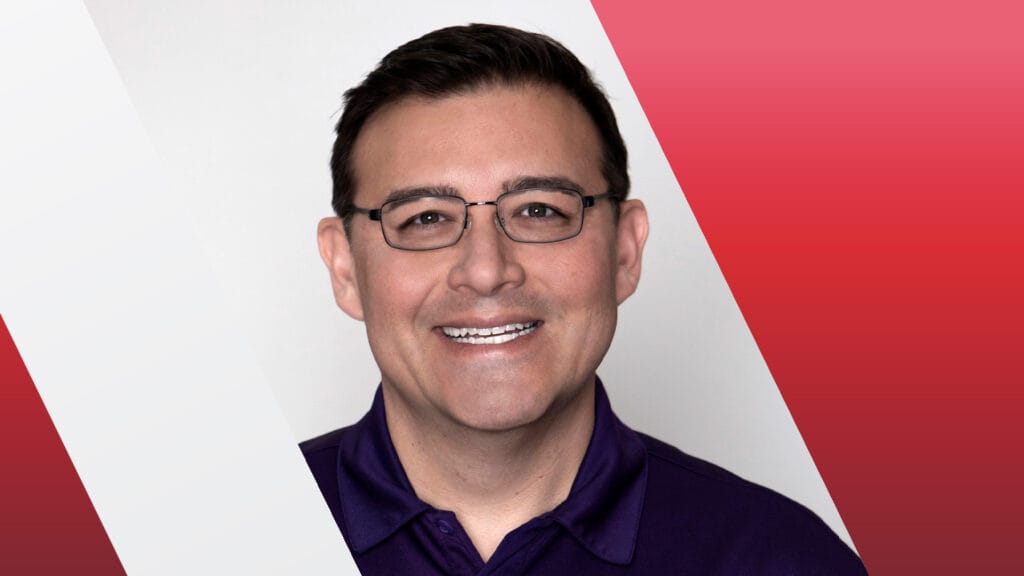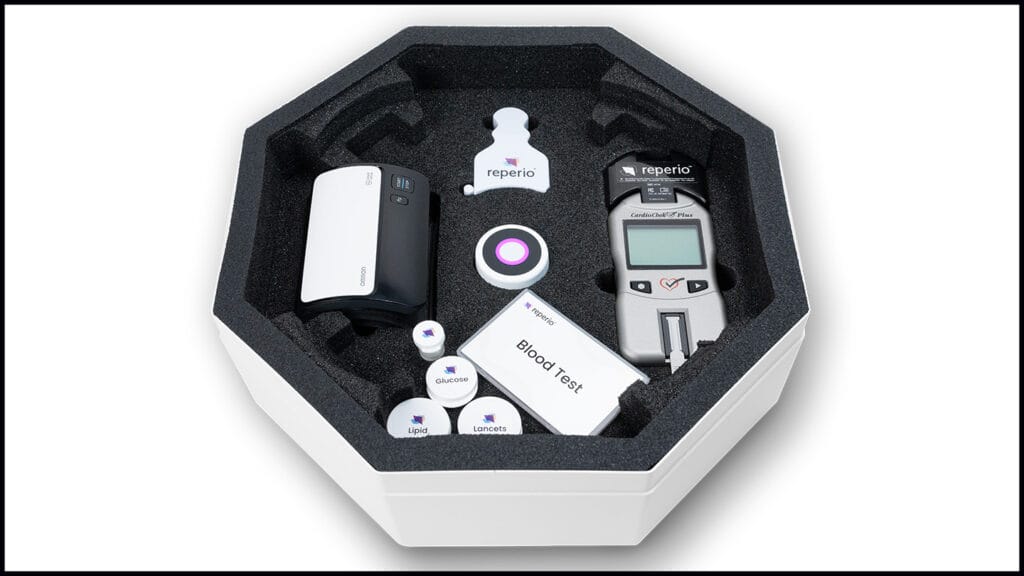
Greg V. Sanchez Jr., PhD, may not seem like the typical home care franchise owner. The chemist by training worked in the pharmaceutical industry for about 15 years before he and husband, Carter Prescott, purchased a Home Instead franchise in 2015. Now Sanchez is the owner and operations director of two California franchises — one in Pasadena and one in neighboring Monrovia — and oversees about 220 employees.
Despite his nontraditional background, Sanchez, 48, who is on sabbatical from teaching chemistry at a local junior college, actually has found synergies between the two industries. Whether it is understanding the medicines his clients are taking, being able to incentivize employees to move up the ladder or forming relationships with academic institutions, Sanchez has leveraged his chemistry training for his new role. He talked to McKnight’s Home Care Daily Pulse about his unique taking on running a nonmedical home care business.
McKnight’s Home Care Daily Pulse: While you were working in the pharmaceutical industry, you held adjunct faculty roles at colleges. What was your approach to teaching?
Sanchez: When I was working in the pharmaceutical industry, I always felt there was an importance to bring real-life experience in the industry to the student body. So that way they could understand directly from someone who actually worked in it to know that it’s not just about research and development. It’s about commercialization, it’s about all these different facets of the pharmaceutical industry, and it really helped with me to connect with the students and get them excited about potential career opportunities.
McKnight’s Home Care Daily Pulse: You are still teaching chemistry on the side. How has that helped in your current position?
Sanchez: It kind of highlights the way I approach things in our caregiving business, because we’ve really structured our compensation on group training opportunities for our caregivers. So our caregivers are not locked down into waiting for an annual performance review. They can take advantage of what we call our Strive program where there are set training criteria and attendance criteria and they can go up the ladder based off of just participating in this program.
McKnight’s Home Care Daily Pulse: Tell us more about when your employees can move up the ladder.
Sanchez: So right now the base wage in Pasadena is about $17 an hour. But in a few months they could jump to $18, $18.50, $19 an hour by participating in the S.T.R.I.V.E. program versus waiting for a performance review end of the year. It might really incentivize them to take control of their professional development.
McKnight’s Home Care Daily Pulse: Did you start the S.T.R.I.V.E. program or is it a companywide concept?
Sanchez: S.T.R.I.V.E., which stands for Super. Trained. Reliable. Informed. Victorious. Employees., is a program that we developed and initiated here about four years ago. A lot of home care companies have some similar structure, but they usually wait for an annual performance review to allow that individual to level up but in our instance the caregiver takes control of when they level up based off of their participation rate. We’ve had caregivers jump three levels within probably about a five-month period solely because they were excited to grow.
McKnight’s Home Care Daily Pulse: You employ nonskilled caregivers. What courses do you offer?
Sanchez: We know it’s still classified as nonmedical home care, but the types of courses they are taking are things on ethics or how do you maintain boundaries in a profession that really touts your compassion. We go into talking about the activities of daily living. We go more into the biology so that they understand it from a health and safety perspective, so we really go into that level of detail and it really excites them to understand that this is just the stepping stone, or the beginning, if they want to move into a healthcare career.
McKnight’s Home Care Daily Pulse: How has the program affected recruitment and retention?
Sanchez: I would say there’s probably been about an 8 to 10% decrease in turnover because the caregivers understand that we are really committed to ensuring that they have the tools in their toolbox to be successful as a care provider with our company. The program has had several iterations. It actually is being funded by California Department of Aging grant that we received so that way we can incentivize even more so when they go up a level they get a bonus. The grant allows us to pay them babysitting and transportation so that they can come and participate.
McKnight’s Home Care Daily Pulse: What do you mean by go up a level?
Sanchez: The S.T.R.I.V.E. program basically is five levels. If the caregiver has no experience, they start at Entry level. If they have some experience, they could come in at the next level which is Experience. Then they can move up additional levels to what we call the Mastery level. They are at the highest salary or highest hourly wage that they can receive because they demonstrated through their training and attendant that they qualify for that.
McKnight’s Home Care Daily Pulse: How else has the program paid dividends?
Sanchez: We have probably, I’d say, about five to 10 hours of course work, whether it be online or in-person. There are specific classes that they have to take to achieve each level, and then the attendance requirement goes up. So maybe for the first two levels if you’re working part-time 20 hours a week, perfect. If you want to continue to level three, four and five, then you’re gonna need to bump up your availability to maybe 30 hours. We’re trying to use it as a way to incentivize coverage of shifts that are a challenge so our 3-to-11s or our weekend shifts. What we’re really trying to do is create really kind of adjust the program so that way it meets our needs as well as the caregiver.
McKnight’s Home Care Daily Pulse: How else have you helped employees grow?
Sanchez: We’ve established relationships with a couple of junior colleges that offer licensed vocational nursing, or practical vocational nursing, and we’ve been able to go ahead and we can write them letters of recommendation. We can get them in touch with the right people so that they can get more visibility to participate in those programs as well as looking for grant and scholarship opportunities to help them along their way. That’s how we demonstrate that we are an employer of choice wanting them to grow professional.
McKnight’s Home Care Daily Pulse: Who would have imagined such synergies between chemistry and home care?
Sanchez: You know what my PhD advisor and then my postdoc advisor always said that you get a PhD in a particular discipline, but we’re teaching you how to think. We’re teaching you how to be creative, to be that innovator. So it’s not just a PhD in chemistry where you can innovate there, but those basic skill sets can be used in any field and any position.
Editor’s note: Peer-to-Peer is a feature from McKnight’s Home Care Daily Pulse in which we talk to the leaders in home care, your peers, about their operational initiatives, efforts and ideas. If you think someone in home care would make a good subject for Peer-to-Peer, please email Liza Berger at [email protected].


